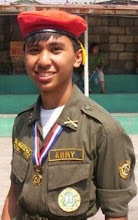by MANUEL A. RODRIGUEZ
I am a strong believer of democracy, particularly in the Philippines. The democracy here in our country can be traced not only to the Malolos Congress of 1899 wherein our forefathers drafted the first Filipino Constitution but to the pre-hispanic settlers on these islands who sailed to freedom from tyrannical monarchs to organize themselves into barangays, named after their boats that conveyed them to their new homeland where the nurtured democracy by governing themselves through compromise and consultations led by their datu or sultan.
The Philippines after undergoing a tyranny in the hands of foreigners, the barangays continue to build the legacy of people’s burning passion for freedom and liberty. Lapu-lapu of Mactan, Raja Sulayman, Jose Rizal, Andres Bonifacio, General del Pilar, Jose Abad Santos, Ninoy Aquino, the GOMBURZA, Dagohoy, Emilio Jacinto, Diego and Gabriela Silang, the martyrs and heroes of Bataan, Cavite and EDSA and the countless heroes of the FIilipino Race including the modern day heroes and statesmen that are on struggle to keep the flame of liberalism alive are testimonies that Filipino people by nature are free men and not born to bondage.
Hence I believe that the teaching of democracy must be included in the educational system of the youth. The perpetuation of the flame of democracy must be done in this land of liberty in Asia, the Philippines.
The Philippines is known throughout the world as a Christian nation. But are we Christian enough in adhering to the mandate of our faith as a Nation? The emphasis of early Christianity was an element of the primary assumptions on which democracy developed its faith in the indispensable impartiality of all men. Catholic theologians St. Augustine and St. Thomas Aquinas upheld liberty as rights of the members of a community. The Christian idea of equality which can be traced form the Jewish tradition and the diction of the Christ himself and elaborated by his apostle Paul, was that all men are equal before God, being descended from the same first parents, who were created by God, and being redeemed by the death of Jesus Christ, and hence are all brothers and can boast no distinction one over the other because of fortune, race or other accidental inequalities. This makes me remember the much-quoted dictum from one of the most celebrated Pope of the Catholic faith Pope Gregory the Great; “All men are by nature equal.”
In these times, bearing in mind the history and culture of the Filipinos and the teachings of the Christian faith in general (both Catholics and Protestants), democracy is the political scheme that is most in consonance with the Christian faith of most Filipinos, among others, for the reason that mutually democracy and Christianity struggle for the preponderance of truth, human rights and the moral and socio-economic expansion and well-being of the individual.
How can democracy get its kick-off in a nation which has never known it? There comes the role of education in democracy. The education of the Filipino youth must, as a vital primary step, locate itself and the purpose of its instruction in the proper cultural setting. By this I mean that education must take into realization the fact that ours is a Christian society which must be instilled by democracy rooted on Christian values.
While I discuss the role of education, let this not be a limit on the term “education” as referring to the role of the degree conferring Schools, Colleges and Universities of the Philippines. What is contemplated on the term “education” is the role that we ought to perform in rearing the youth of today, this may happen not only in the school set up but also in the comforts of the family home, in an intimate discussion with the youngsters and as a preaching or sermon in Church. Yes, in Church. The Filipino Christian Churches (Catholics and Protestants) never failed to adhere to its mandate in making disciples of every nation and propagating the faith probably because it is one of the obvious purposes of being a Church, however most Churches seemed to overlook a mandate…the mandate to teach democracy and instill nationalism on their respective congregations.
On the palace of the Viceroy of India there inscribed a motto: “Liberty will not descend to a people; a people must raise themselves to liberty.” Democracy cannot succeed until a people agree to it and inscribe its precepts in their minds and hearts. It must become a part of their nature, their culture, their everyday living and that takes generations and there is no time to start than now.
To start the education on Christian democracy, let us start by accepting that democracy is a process and not a set form. It is in a way a continuous revolution. It never lays claim as a perfect system for it is not a fixed system but a procedure. You, bearing these in things in mind as regards to democracy are my hope that you will continue to nurture the education on democracy. The influence of religious congregations that believes in the teachings of Jesus Christ must be taken advantage in advancing this political system.
Christians, let us be vigilant in protecting and perpetuating this wonderful gift we received from the fountain of justice and wisdom himself, Democracy. God bless the Philippines.






